Food
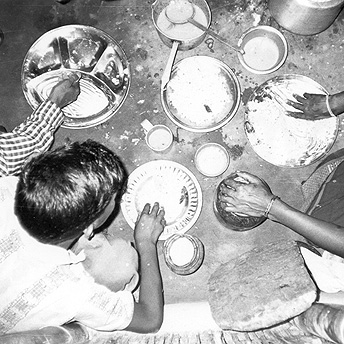
Supper in my hut. We all eat happily together in our small huts even though we are refugees. What can we do? It is difficult to solve our problems. So many years have passed and there has been no progress to solve our situation. Yethi Raj / PhotoVoice / LWF
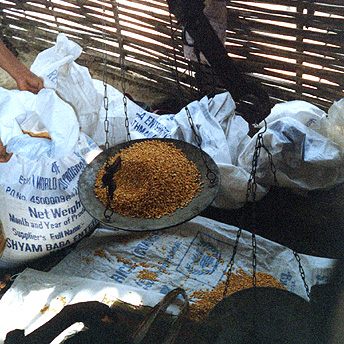
When giving rations they give everything by measuring on the beam balance. We receive things according to the number of family members. If a family has small babies then the rations will be sufficient…
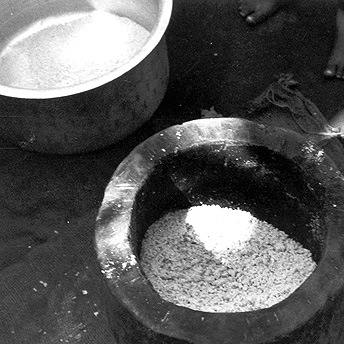
… If the family has only adults they will have to buy extra or borrow from others. We have to eat little to make it last. In Bhutan we could eat whenever we liked but in camps we cannot eat like this due to the scarcity of things available to us. Aite Maya / PhotoVoice / LWF
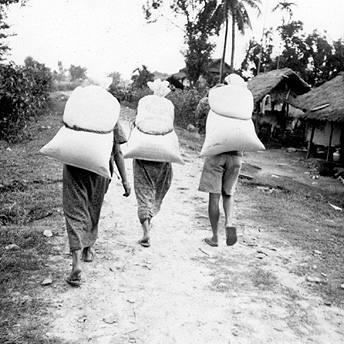
Carrying rations back to the huts. Praja / PhotoVoice / LWF
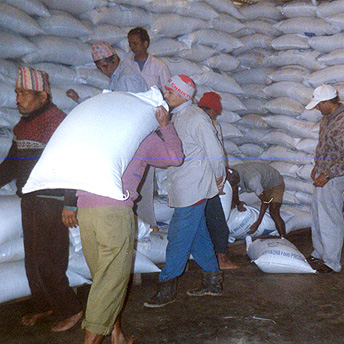
This is the ration store. Rations are stored here and taken to the distribution centre to be given to the people. Bhima / PhotoVoice / LWF
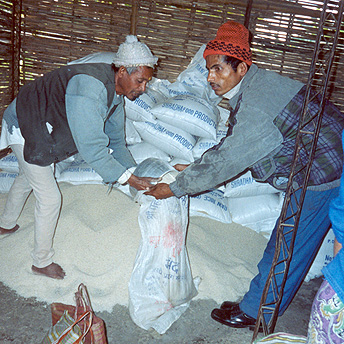
These pictures show a ration distribution centre. The camps are divided into different sectors and each sector is divided into different unit. On different days different units come to collect their rations….
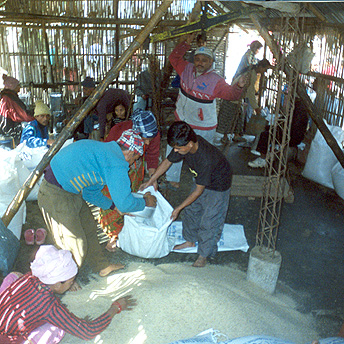
…. Families collect their rations every 15 days. One person hands it out giving everyone the same measurement. Ajay / PhotoVoice / LWF
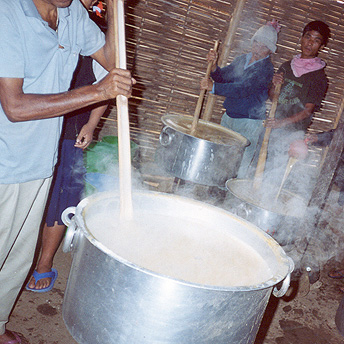
True love lies in the purity of heart. These elders prepare and distribute unilator (food supplement) for the youngest students without any incentive. They prepare unilator for more than 5000 students. Khina / PhotoVoice / LWF
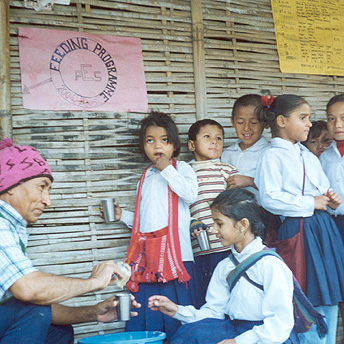
We have to work to prepare the rice we are given in rations for eating. The rice can be very dirty. It contains germs and small pieces of stone which are harmful to our health. All of these must be taken out before we can eat the rice. Bhimma / PhotoVoice / LWF
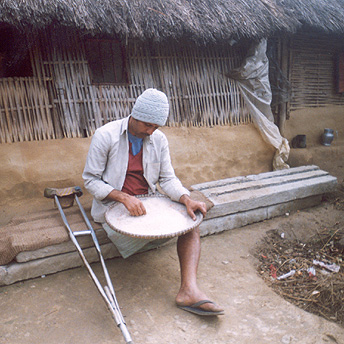
We have to work to prepare the rice we are given in rations for eating. The rice can be very dirty. It contains germs and small pieces of stone which are harmful to our health. All of these must be taken out before we can eat the rice. Bhimma / PhotoVoice / LWF
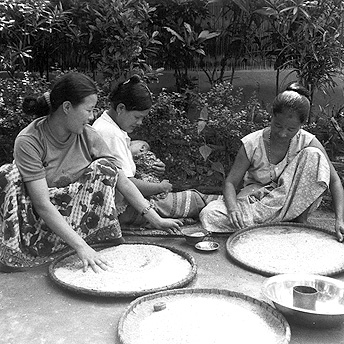
We have to work to prepare the rice we are given in rations for eating. The rice can be very dirty. It contains germs and small pieces of stone which are harmful to our health. All of these must be taken out before we can eat the rice.
Bhimma / PhotoVoice / LWF
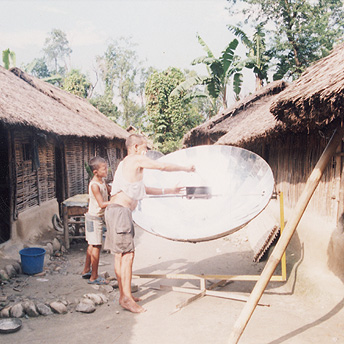
Some refugees cook their daily meal in a solar oven. We have to do this because we are not given sufficient kerosene to cook all our meals.
Suresh / PhotoVoice / LWF
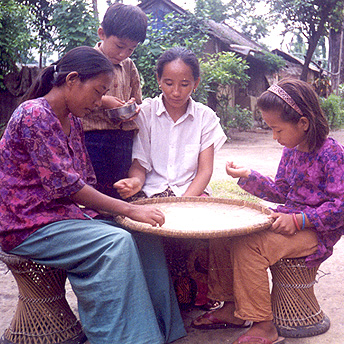
The rice we are given for rations is so black and has many dust particles. We have to look very carefully while winnowing. Bishnu Maya / PhotoVoice / LWF
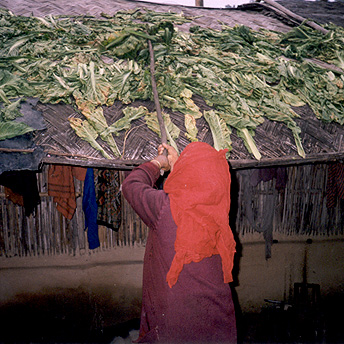
Drying sag.
Ajay / PhotoVoice / LWF
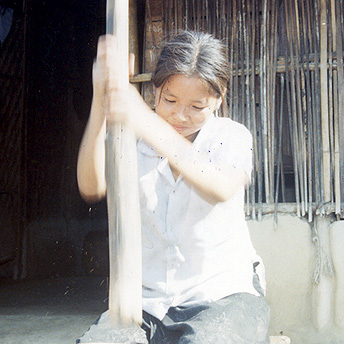
Beating rice
Buddhi Maya / PhotoVoice / LWF
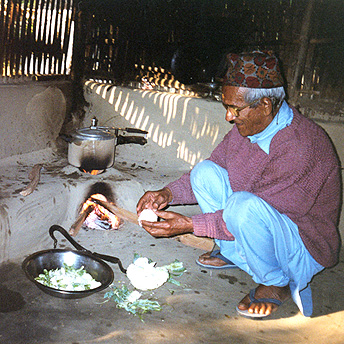
This old man cooks in his hut using firewood. We are given brickettes to use but they burn slowly and do not cook the food properly. We have to buy firewood or collect it ourselves and this is hard for some people.
Abishek / PhotoVoice / LWF
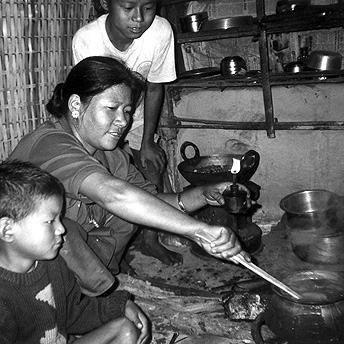
Cooking curry in the hut. We have to earn extra money in order to be able to buy vegetables. Many people cannot afford to have a healthy diet and they become ill.
Bhimma / PhotoVoice / LWF
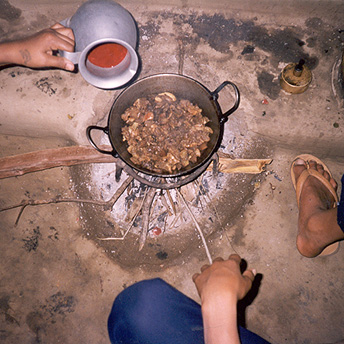
We are given 6 items every 14 days. The six items are rice, lentils, chickpeas, oil, sugar and salt.
Dil / PhotoVoice / LWF
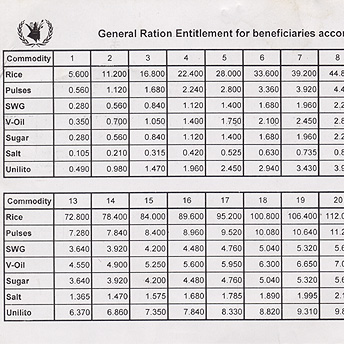
A ration card
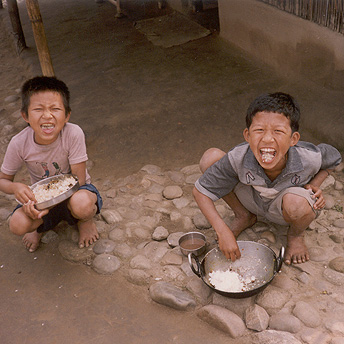
Children eating. Til Maya / PhotoVoice / LWF
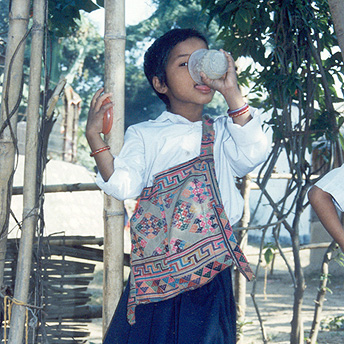
Children eating. Til Maya / PhotoVoice / LWF





















Return to the Camp Tour